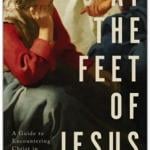The Mail & Guardian Africa reports on Zimbabwean pastor Evan Mawarire, who has inspired a nationwide resistance to Robert Mugabe and now faces sedition charges. In April 2016, Mawarire “draped Zimbabwe’s flag over his shoulders, logged on to Facebook and delivered a passionate appeal to his fellow countrymen. He urged them to have the courage to fight for their nation’s future, using the hashtag #ThisFlag.” His appeal was followed by a general strike in July 2016 that shut down “schools,... Read more
















